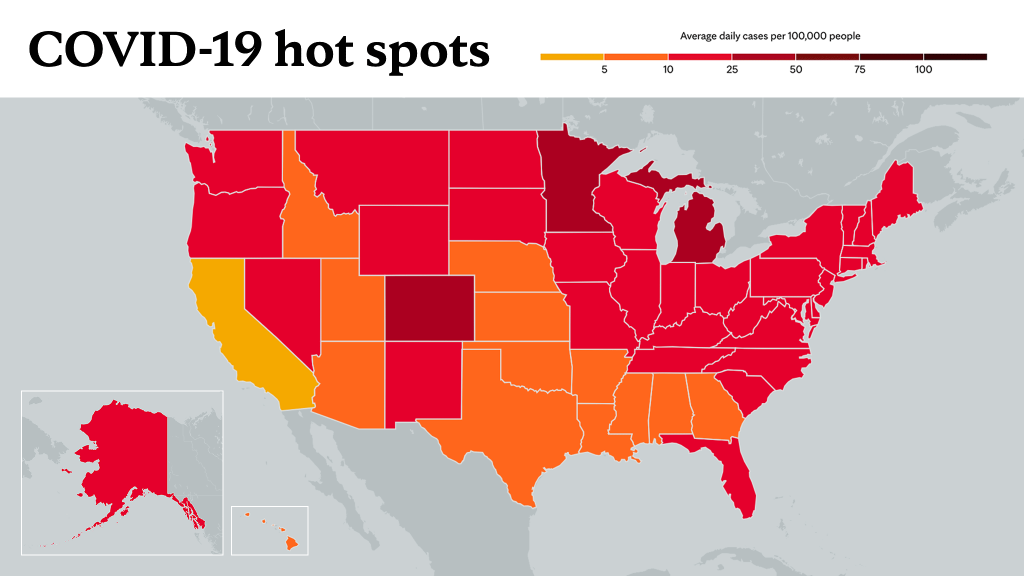
When it comes to the common cold, allergies and COVID-19, overlapping symptoms can be confusing.
In this Q&A, Dr. Arveen Bhasin, a Mayo Clinic allergist and immunologist, provides some clarity by comparing and contrasting the signs and symptoms of these conditions:
What are allergy symptoms?
Allergy symptoms can affect the nose, sinuses and lungs. These symptoms can present with itchy, watery eyes; runny nose; sneezing; nasal congestion; postnasal drip; coughing; wheezing; and shortness of breath.
How do allergy symptoms compare to COVID-19 symptoms?
Some of these allergy symptoms, such as coughing, shortness of breath and some wheezing, overlap with COVID-19 symptoms. Fatigue is also common in allergy and COVID-19, as is headache. However, with COVID-19, a lot of times people will have fever, loss of sense of smell or taste, muscle aches, nausea or vomiting, and diarrhea, which are not seen with allergies.
With allergies, what happens is the immune system decides to see harmless substances, such as pet dander, pollen or dust, as foreign. So it starts to manifest an immune response to these allergens.
Watch: Dr. Bhasin discusses cold, allergy, and COVID-19 symptoms.
Journalists: Broadcast-quality sound bites with Dr. Bhasin are available in the downloads at the end of the post. Please courtesy: "Arveen Bhasin, M.D./Allergic Diseases/Mayo Clinic."
How can people know if they have allergies versus COVID-19?
Regarding allergy symptoms and COVID-19 symptoms, fatigue, headache, nasal congestion and sore throat are all overlapping symptoms. But itchy eyes, watery eyes, and runny nose, COVID-19 is not really presenting with that. Those are more symptoms of allergies. And, again, loss of sense of taste or smell, muscle aches, fever, gastrointestinal symptoms would lend more toward COVID-19 if we're trying to differentiate COVID-19 versus allergies.
How can people know if they have allergies versus a cold?
Typically, with a cold, symptoms come on fairly quickly. You may have a fever. You may have some muscle aches. You can certainly have the headaches and just a general feeling of discomfort. You also may have some nausea or vomiting, depending on the severity of your symptoms. But the symptoms are going to start to improve and subside within about a week or so. With allergies, however, they're going to linger, particularly if you've had these symptoms in the past from a seasonal standpoint.
If you know that every spring you have allergy symptoms, then your history kind of helps along with that. If you try an over-the-counter antihistamine and that helps mitigate some of the symptoms, that would probably go along more with it being allergies.
____________________________________________
For the safety of its patients, staff and visitors, Mayo Clinic has strict masking policies in place. Anyone shown without a mask was either recorded prior to COVID-19 or recorded in a nonpatient care area where social distancing and other safety protocols were followed.
Information in this post was accurate at the time of its posting. Due to the fluid nature of the COVID-19 pandemic, scientific understanding, along with guidelines and recommendations, may have changed since the original publication date.
For more information and all your COVID-19 coverage, go to the Mayo Clinic News Network and mayoclinic.org.
Learn more about tracking COVID-19 and COVID-19 trends.








